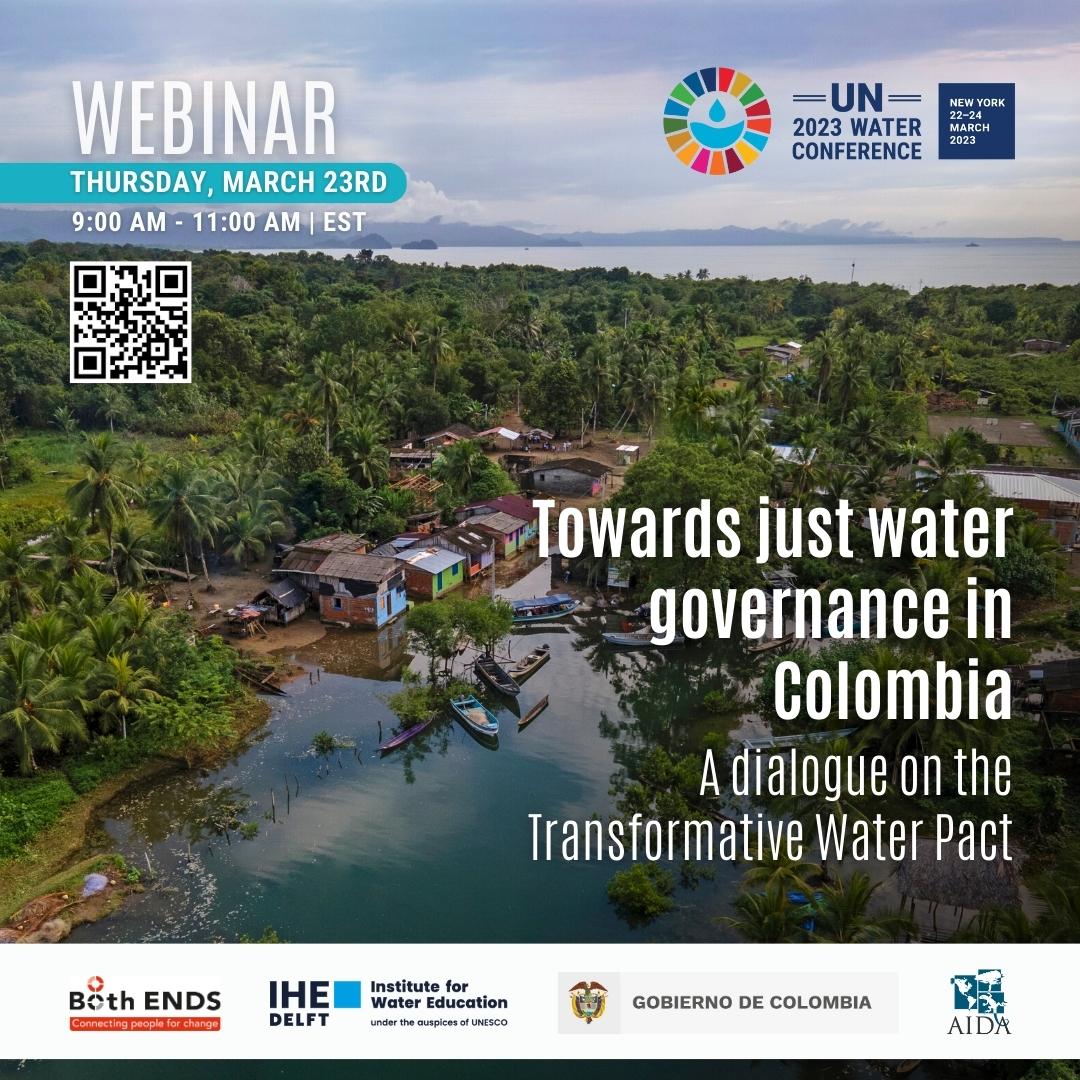
What does an economy look like that serves the well-being of people and the planet?
A wide range of great ideas about a transition to sustainable and just economic systems already exist, including ways to get there and examples that show that it is really possible. In this talkshow, we highlight some of these examples and hope to fuel the dialogue about this topic.
Inspired? Join our 'The Future We See' - talkshow on May 25th! You can either attend live or online, quietly listen or actively participate in the discussion. We hope to see you there!
Get your free tickets for the liveshow (limited!) or to join online here!

The UN Water Conference is an important event that brings together stakeholders from around the world to discuss water and climate solutions. This year, GAGGA is organizing a side event during the conference that you won't want to miss!
On Thursday March 23rd, from 1.15 -2.30 pm, GAGGA will present their commitment to support, finance, and promote locally rooted, gender just climate and water solutions within the Water Action Agenda. This event will inspire other stakeholders to join in their commitment, while presenting inspiring examples of such solutions presented by local women from Nepal, Kenya, Paraguay, Mexico, and Nigeria.

This event will present The Transformative Water Pact (TWP), an innovative framework for water governance that has been developed by environmental justice experts from around the world. The TWP will serve as a starting point for dialogue between representatives of the government of Colombia, academia, regional and international NGOs in relation to Colombia's current ambitions in multi-scalar water governance.


On Sunday March 5 Both ENDS will be joining the Feminist March (called Women's March before). It starts at 1 PM at De Dam in Amsterdam.
With our block "Feminists for Climate Justice" we'll gather in front of Madame Tussauds.

Both ENDS and the Land Portal Foundation invite you to the fourth webinar in the Whose Land? Inclusive Pathways to Land Governance series. This fourth Whose Land? webinar will focus on the question: How can donors fund land governance initiatives through an inclusive process?
More information about this event is available on Landportal.org

UNFCCC COP side event
Food systems account for 33% of GHG emissions, but receive only 3% of climate finance. Climate finance is urgently needed to fund the food systems solutions that can have real impacts and wide-ranging benefits in a diversity of contexts. How do we improve on current funding pathways?
Join this UNFCCC side event to find out more!

UNFCCC-COP side event
In this session hosted by NTFP-EP and the Global Alliance for Green and Gender Action (GAGGA), we will discuss the crucial steps to be taken to make gender-just climate finance a reality.

Both ENDS and the Land Portal Foundation invite you to the third webinar in the Whose Land? Inclusive Pathways to Land Governance series. This third Whose Land? webinar will showcase gender transformative approaches on women's land rights. Gender transformative approaches are defined by women acting as agents of change, transforming structural barriers and redefining gender norms. These approaches facilitate the participation of women in land governance decision-making processes, but require closing the land data gender gap.
Register here

Still, more funds are spent on the fossil industry than on sustainable solutions. Banks, pension funds, insurers and governments keep investing in fossil infrastructure which endangers people and the environment. Therefore we call on financial institutions to stop funding the climate crisis.
Join our "Stop Fossil Finance" block at the next climate march!

Both ENDS and the Land Portal Foundation invite you to the second webinar in the Whose Land? Inclusive Pathways to Land Governance series, which will focus on the opportunities and constraints of civil society organizations (CSOs) and local communities in advocating for more open land data and in harnessing its power for improved land governance.

Join us this Saturday the 28th of May for an inpiring session about the role of agro-ecology in the trasformation to a future proof food and farming system on the African continent (and beyond).

Join us for an open space for a reflection and exchange on a new dataset, developed by WRI, to monitor regreening efforts, and its applications in the Sahel.
In the drylands of Africa, land degradation threatens the livelihoods of millions of people. Fortunately, there are promising initiatives emerging all over the continent that are turning the tide. Throughout the Sahel, for example, vast tracts of land along the Great Green Wall have been restored by local communities. They have nurtured the plants that spontaneously spring from the soil, protecting young sprouts from cattle and other hazards.